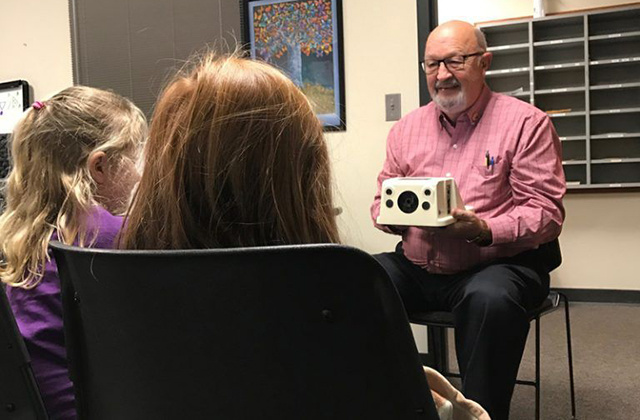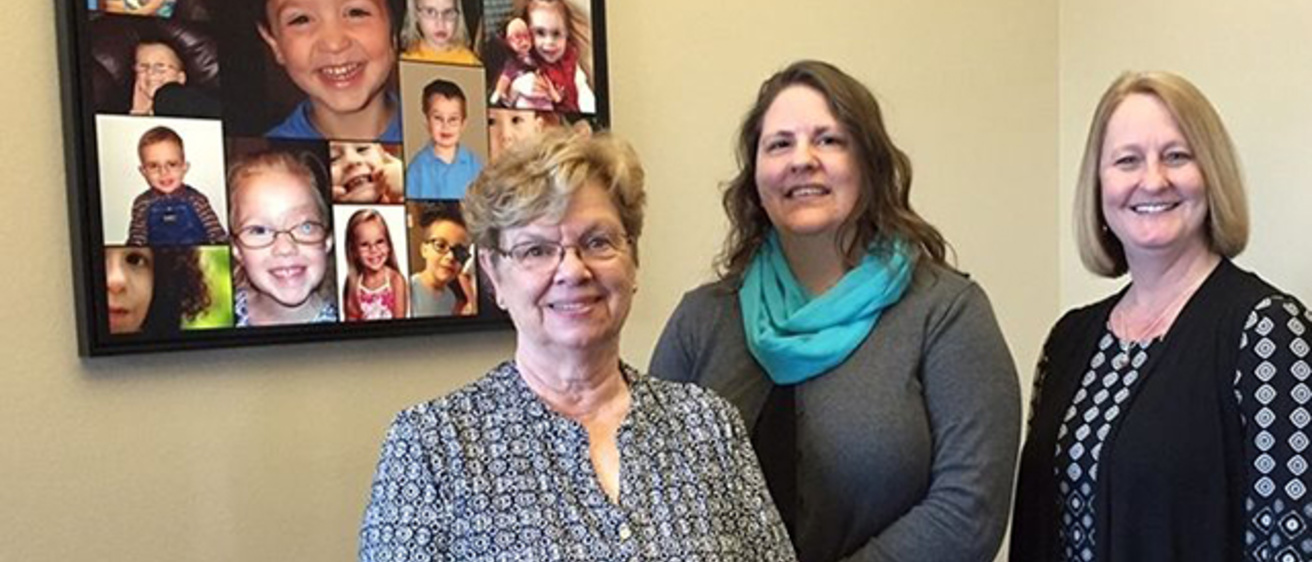Children can experience permanent vision loss if problems aren’t caught within the first few years of life. But young children often can’t tell you if they don’t see well, or they may think that their poor vision is the norm.
Iowa KidSight, a partnership between University of Iowa Stead Family Children’s Hospital and Lions Club volunteers across the state, screens children from 6 months old to to those entering kindergarten for vision problems. About 5 percent are referred to an eye doctor, and of those children, roughly 90 percent require some form of corrective treatment. Issues caught by the screening include farsightedness, nearsightedness, differences in refractive errors, astigmatism, things inside the eye (such as cataracts), and muscle imbalances.

“The program has benefited thousands of kids by helping them see better, read better, and thrive,” says Lori Short, director of Iowa KidSight.
Since the Iowa KidSight program’s inception in May 2000, nearly 444,000 children have been screened, and approximately 25,600 have been referred for an eye exam.
Lions Club volunteers are trained to conduct the screenings for kids in their local communities. There are 74 screening devices spread across the state; they capture images of a child’s eyes to see how light refracts through them. The local Lions Clubs raised the funds to pay for the devices, which cost $10,000 apiece.
The images are then sent to KidSight for processing and analysis. Wanda Pfeifer in the UI Department of Ophthalmology and Visual Sciences has analyzed every screen since the program’s inception in 2000. She either gives them a passing grade or recommends that the parents make an appointment with an eye doctor for a full vision exam. KidSight staff members provide a list of local eye doctors for each county in Iowa, and they follow up with every family that doesn’t make an appointment for an eye exam.
Short recognizes how meaningful her job is when she hears about success stories from children the program has screened. It’s common for some young children with vision problems to act out and struggle in school, but once the child’s vision is corrected, it often improves their behavior as well.
“There was one boy I was told about who suddenly wanted to read and to learn in school after realizing he could actually see.” Short says.
A new state law now requires all children entering kindergarten to receive an eye screening. Iowa KidSight is the only program in the area that provides that service for free. Learn more at medicine.uiowa.edu/kidsight.
